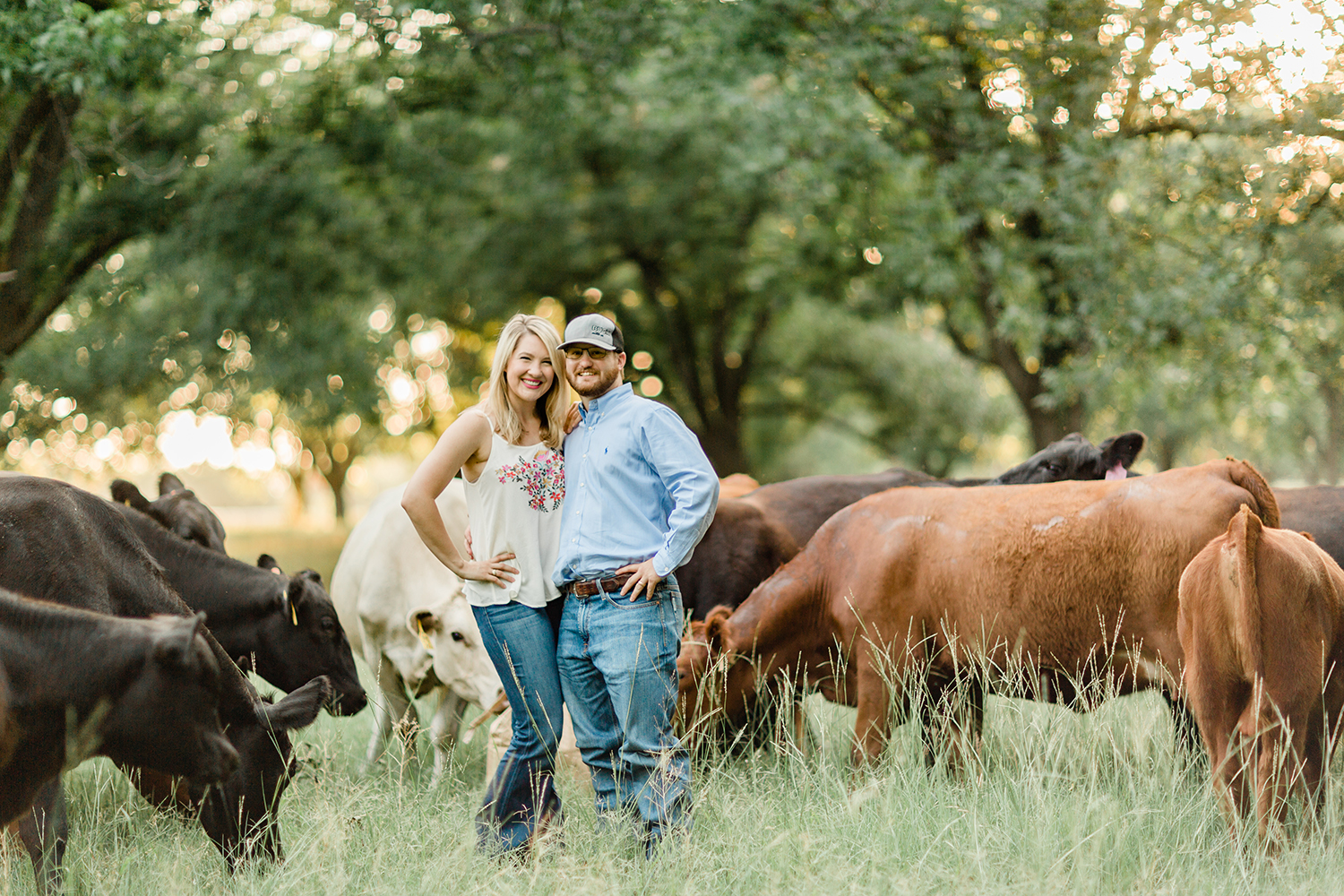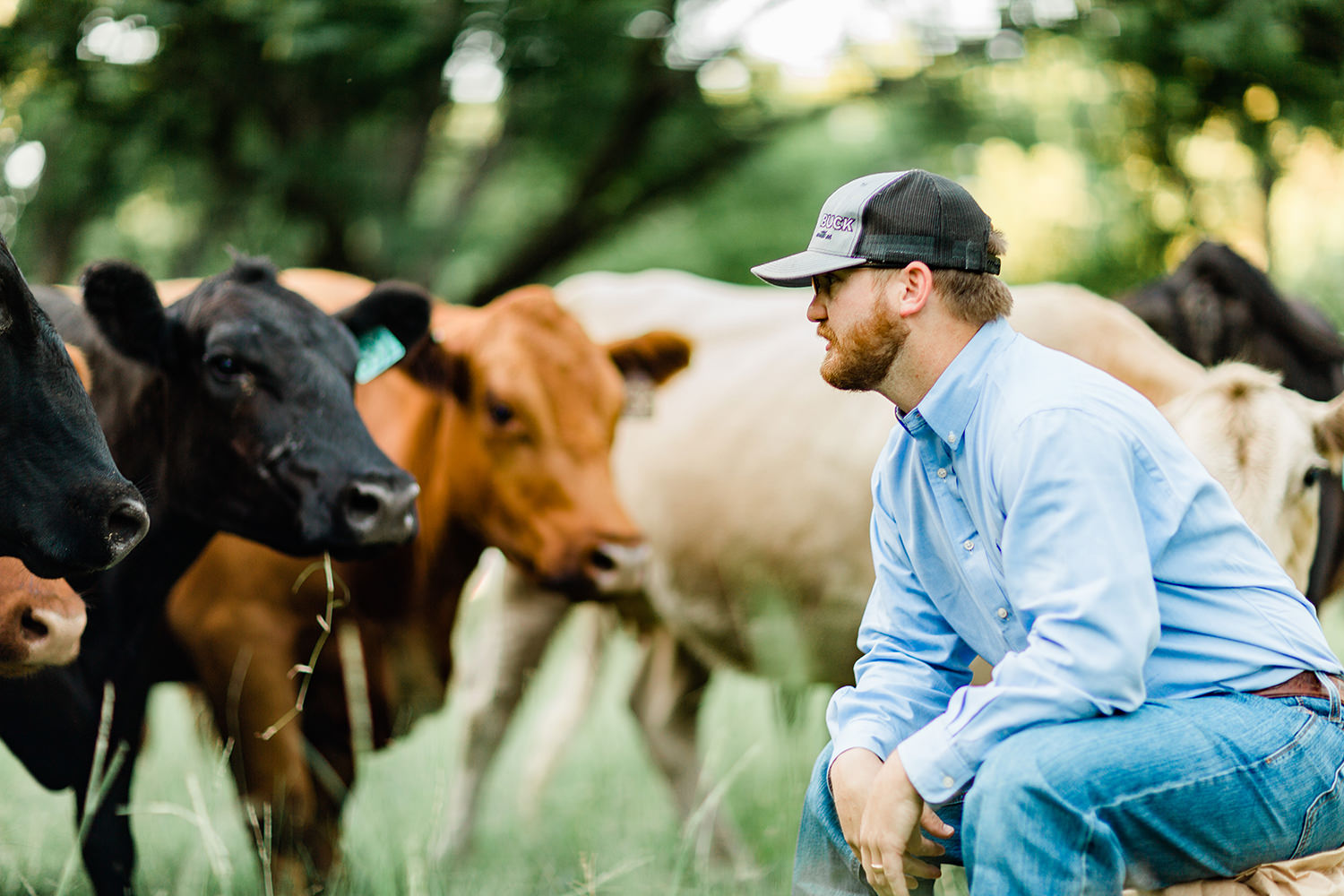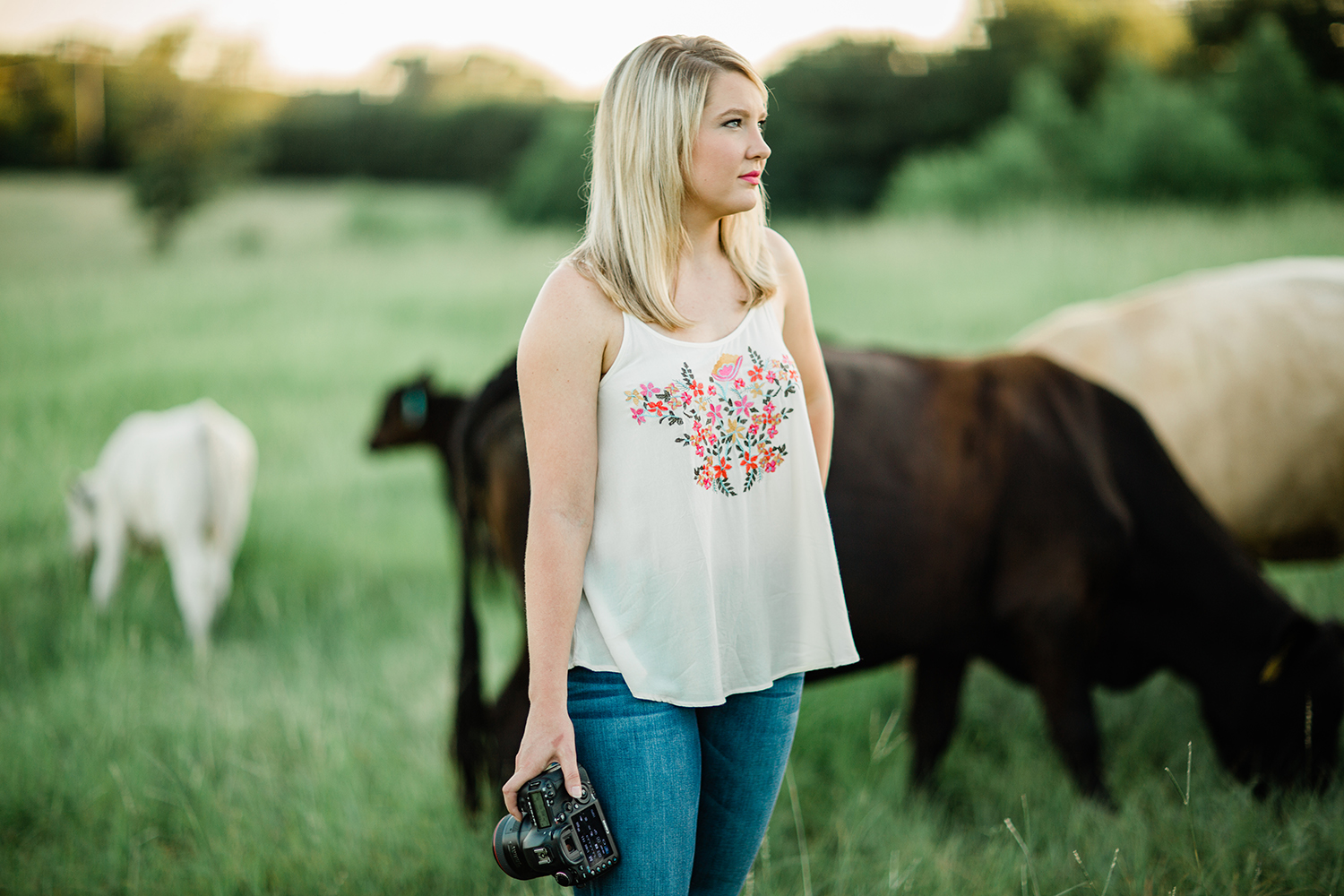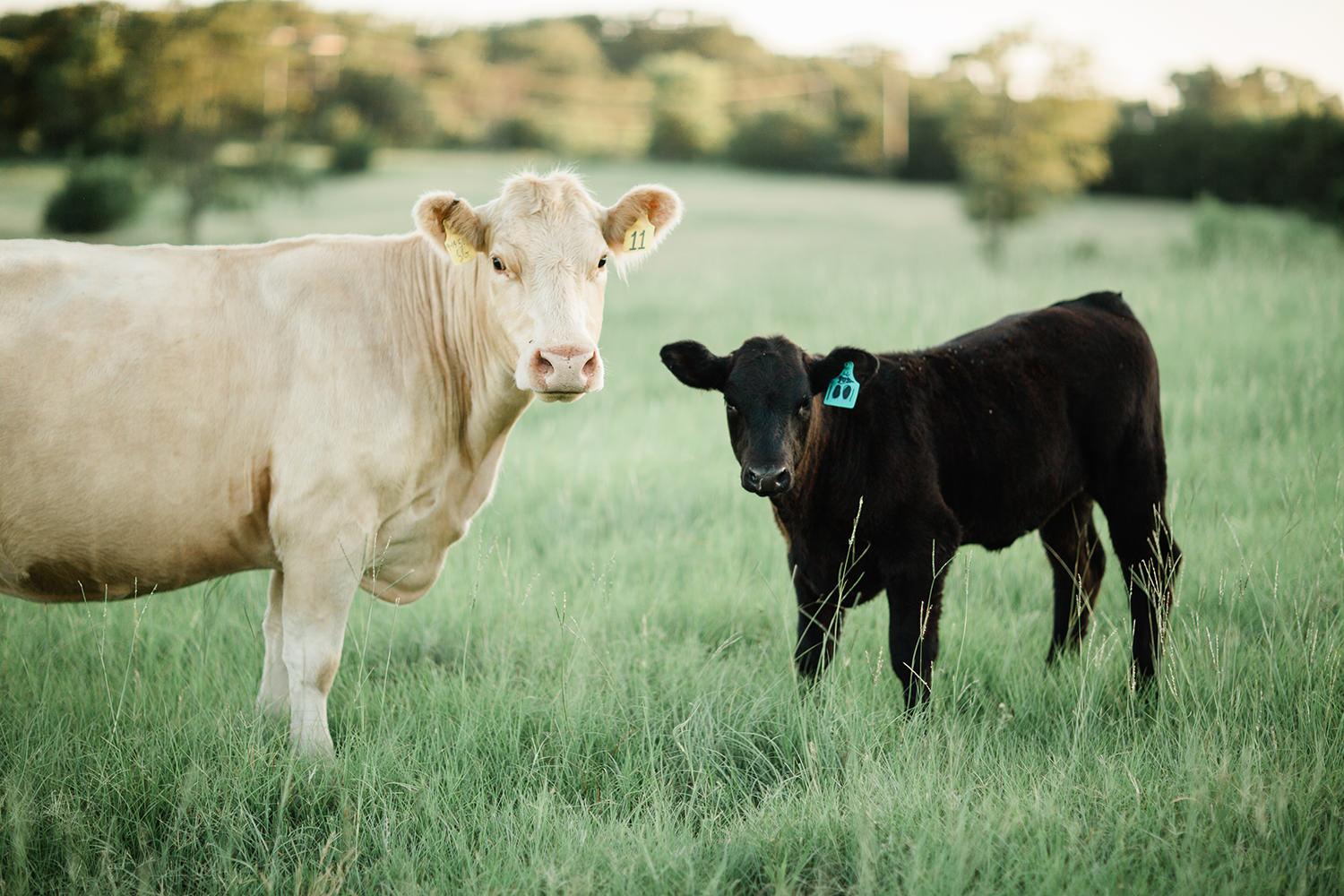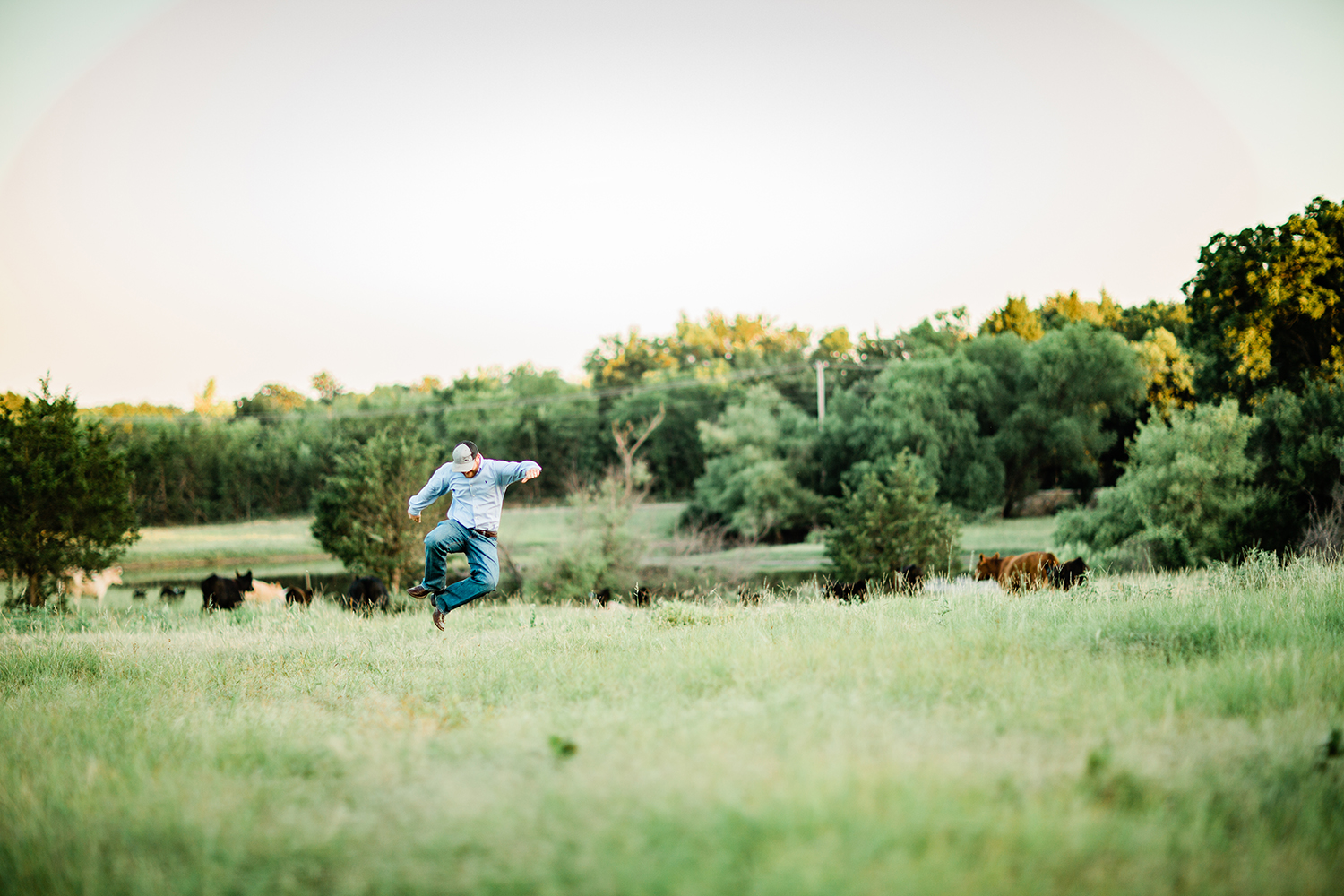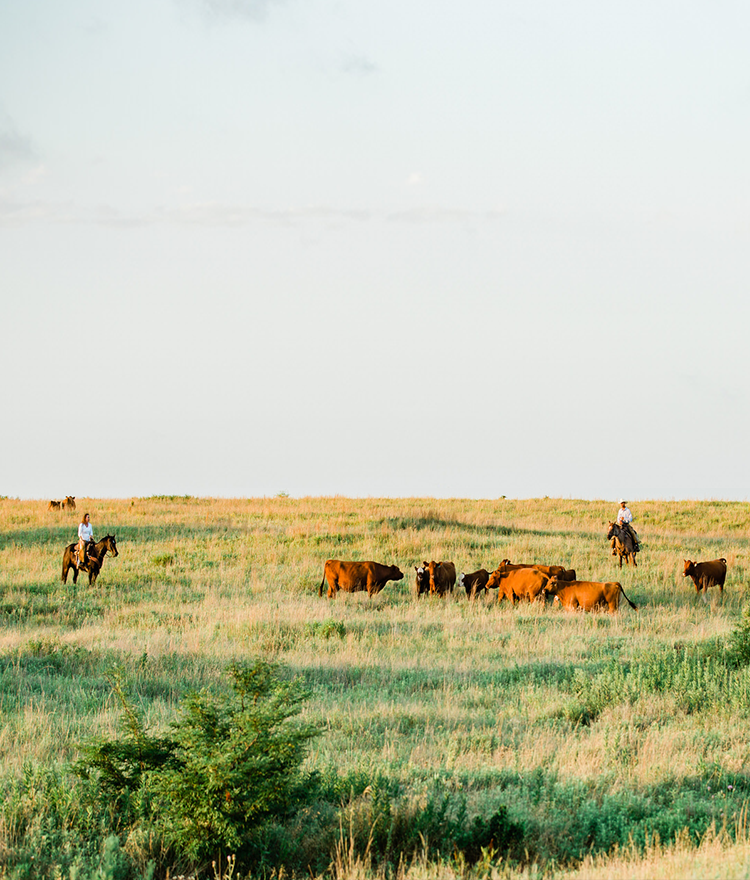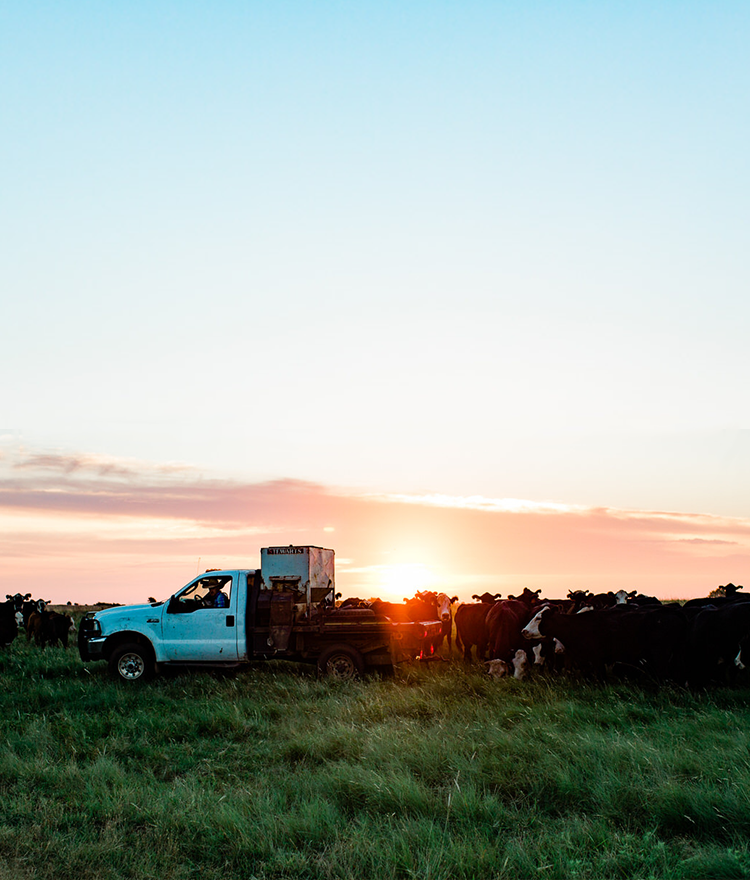Ryan and Chloe Jones
Ryan and chloe Jones
Ryan and Chloe Jones balance their full-time careers as a loan officer and a wedding photographer with early mornings and late nights as beef ranchers in Ardmore, Okla.
Meet Your RancherS:
What makes your ranch unique?
We are millennials who were raised in a technology-rich time. That technology mixed with our ag backgrounds makes us a whole new breed of cattle raiser. From the way we make breeding decisions to the way we market our cattle, everything is so different from the way either of our families have ever done it.
For example, in order to maximize our herd’s genetic potential, we utilize artificial insemination and embryo transfer. Every female on our place is either AI’ed or the recipient of an embryo and then turned out with a bull. We have many goals for our operation, but one is to be 100 percent AI and ET in the next 3-5 years.
Who are the key players on your ranch?
The core leadership of Jones Brothers Cattle Co. consists of Ryan and Chloe as well as Ryan’s younger brother, Brett. There’s no doubt that without the help and guidance of our families we wouldn’t be able to achieve the things we love doing. Ryan’s family really steps up and helps us in a very “hands on” approach when we’re in need. On the other hand, Chloe’s family shares a wealth of wisdom and knowledge that comes from farming and raising cattle in Texas for more than 50 years. We’re truly blessed to come from such supportive ag backgrounds.
What are some of the greatest challenges or opportunities you’ve faced on your ranch?
To pull just one challenge out of the bunch is a challenge in and of itself. The greatest challenge for us is that our operation can’t quite support our families on its own. We each have full-time jobs on top of the daily operations that the cattle require. This means many early and/or late hours are spent feeding, breeding, and maintaining our cattle herd even after a full day of work.
As an industry, animal agriculture faces numerous obstacles. Our profitability is based on commodity prices that can be affected by numerous factors. Therefore, projecting what a typical year’s income can be like throwing darts at a board. John F. Kennedy once said, “The farmer is the only man in our economy who buys everything at retail, sells everything at wholesale, and pays the freight both ways.” This concept still holds true today.
What does a typical day look like?
This depends on the time of year, but mostly our days start early and end late. We feed those who need to be fed, breed those who need to be bred, and make sure that all of our cows, calves, and bulls are healthy and thriving. My favorite way to end the day, when we actually get to wrap up before the sun sets, is when Ryan, Brett, and I get to walk through the pasture looking at our current calf crop, discussing future breeding decisions, and just spending a little time with each other. How does the technology differ from technology passed down from previous generations? There is so much information available now at the click of a mouse or touch of a phone. From breeding information on AI sires to market trends, everything is accessible in the blink of an eye. Growing up, all of the information was shared most mornings at the local coffee shops.
What is your favorite part of being a beef rancher?
Our favorite part of being a rancher is to know that I’m just a small part of a bigger collective picture of agriculture workers doing our best to feed not only our nation but also the world. Our population is growing, and our arable land is shrinking. We’re working hard to better our cattle herd and make them more productive, so that we can continue to meet any challenges the future brings.
"A favorite childhood memory of mine was going with my daddy early in the morning and having breakfast with all of the local farmers and ranchers. Rarely would I ever say a word, but it was because I loved listening to the old stories, new happenings, and how much rain everybody got the last time we had a good cloud come through." - Chloe Jones
What does sustainability mean to you?
In this day and age, there’s undoubtedly so much misinformation circulated via social media and even some media outlets. Sustainability is twofold. First is educating our neighbors. We use safe and humane practices every day to take care of our cattle, and I think people need to get out and see that so that they can understand why we do what we do and not be afraid. The second half of sustainability for me is being able to pass down the cattle business and traditions to future generations. In order to do that we have to tediously take care of our natural resources and continuously improve our cattle. - Chloe
If you could explain agriculture to someone who is not family to agriculture what would it be? Why?
Agriculture is a tight knit of families and small businesses that work day in and day out to feed, fuel and clothe the world.
If you could describe the life of a rancher using one word, what would it be and why?
Devotion. Raising cattle isn’t easy, and sometimes it can be simply exhausting. Cattlemen (and Cattlewomen) are born with a strong sense of devotion that carries into all aspects of their lives. They are devoted to their families, devoted to their cattle, and devoted to making a better future. - Chloe
Fulfilling. We always say you only get in what you put out. It is truly fulfilling and rewarding to see hard work pay off and know what you’re working towards is a part of the bigger picture of feeding the world and helping someone. - Ryan
What is your favorite cut of beef and how do you like it prepared?
It’s tough to nail that down for me, but if I had my pick of any cut of beef at this moment, I would have to choose a hanger steak. It’s an amazingly tender cut of beef that has wonderful flavor. - Chloe
Ribeye, Medium Rare. - Ryan
JONES BROTHERS CATTLE CO.
ARDMORE, OKLAHOMA
COW/CALF RANCH
Cows are bred and calves are born and raised every year on cow-calf farms and ranches, spending time grazing on grass pastures within sight of their mothers.
